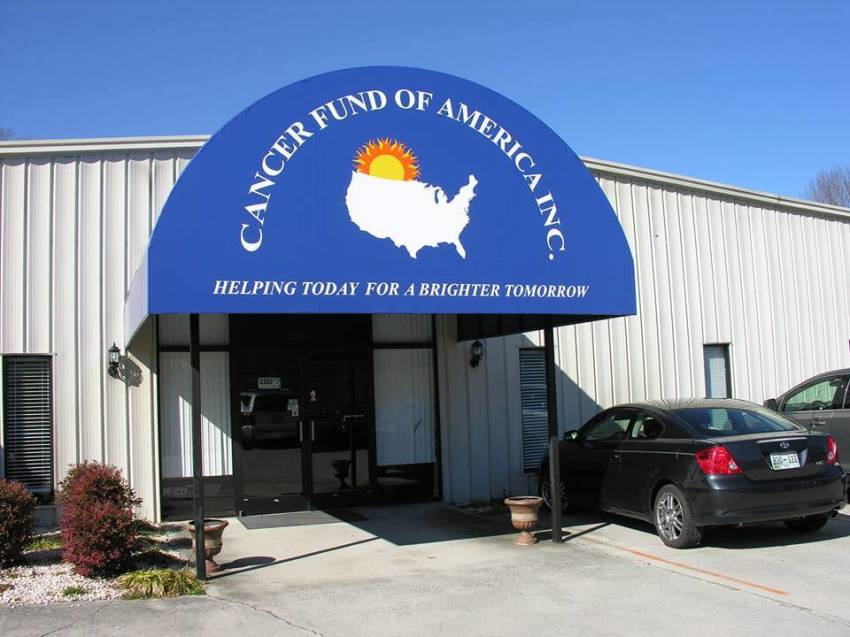Sham Cancer Fund Agrees to Shut Down After Bilking Millions From Consumers

After being sued for widespread fraud, which bilked consumers out of millions of dollars, a self-described charity called the Cancer Fund of America, based in Tennessee, has tentatively agreed to go out of business.
According to CNN, the decision came after a court battle with the Federal Trade Commission and the attorneys general for all 50 states.
In a 2014 chart billed America's Worst Charities based on cash paid to solicitors in a 10-year period, the Cancer Fund ranked second behind another outfit called the Kid's Wish Network. The Cancer Fund raised $86.8 million but paid $75.4 million to solicitors while spending just 1 percent of the funds raised on direct cash aid.
An investigation by the Tampa Bay Times and The Center for Investigative Reporting found that for years, Cancer Fund founder James T. Reynolds Sr. and his family obscured the fact that they were funneling donations to help cancer victims into their personal empires while using accounting tricks, deceptive marketing campaigns and lies to hide what they were doing.
Citing documents filed in U.S. District Court in Phoenix, CNN reported Monday that the Cancer Fund agreed to go out of business and be operated by a court-appointed receiver for the time being. The agreement, however, is not yet binding because the attorneys general still need to sign off on it.
The Cancer Fund, according to CNN, is the last of a "family" of cancer charities operated by Reynolds and his family members that were exposed through years of reporting by the Tampa Bay Times and CNN. The reports exposed fake donations, faulty record keeping and charity directors for collecting millions on donations without showing any real benefit to people suffering with cancer.
The FTC and attorneys general for all of the states sued Cancer Fund and the related charities last year alleging widespread fraud.
"The Federal Trade Commission and 58 law enforcement partners from every state and the District of Columbia have charged four sham cancer charities and their operators with bilking more than $187 million from consumers. The defendants told donors their money would help cancer patients, including children and women suffering from breast cancer, but the overwhelming majority of donations benefitted only the perpetrators, their families and friends, and fundraisers," noted the FTC in a statement last May.
The authorities noted that the case was one of the largest actions brought to date by enforcers against charity fraud.
"Cancer is a debilitating disease that impacts millions of Americans and their families every year. The defendants' egregious scheme effectively deprived legitimate cancer charities and cancer patients of much-needed funds and support," said Jessica Rich, director of the FTC's Bureau of Consumer Protection, in the statement. "The defendants took in millions of dollars in donations meant to help cancer patients, but spent it on themselves and their fundraisers. I'm pleased that the FTC and our state partners are acting to end this appalling scheme."
Also named as defendants in the lawsuit were Reynold's ex-wife, Rose Perkins, who operated Children's Cancer Fund of America while their son, James Reynolds Jr., ran The Breast Cancer Society. Another man, Kyle Effler who operated Cancer Support Services, was also listed as a defendant.
At the time Perkins, Reynolds Jr. and Effler agreed to settle the charges against them. Under the proposed settlement orders, Effler, Perkins and Reynolds were banned from fundraising, charity management, and oversight of charitable assets while the Children's Cancer Fund of American and the Breast Cancer Society operations were both dissolved. Litigation had continued against the Cancer Fund and Cancer Support Services and James Reynolds Sr., until this week.
According to the complaint, Reynolds and his family used telemarketing calls, direct mail, websites, and materials distributed by the Combined Federal Campaign, which raises money from federal employees for nonprofit organizations, to portray themselves as legitimate charities with substantial programs that provided direct support to cancer patients in the United States, such as providing patients with pain medication, transportation to chemotherapy, and hospice care.
It charged, however, that the claims were deceptive and that the charities "operated as personal fiefdoms characterized by rampant nepotism, flagrant conflicts of interest, and excessive insider compensation, with none of the financial and governance controls that any bona fide charity would have adopted."
The defendants, according to the lawsuit, used the organizations for lucrative employment for family members and friends, and spent consumer donations on cars, trips, luxury cruises, college tuition, gym memberships, jet ski outings, sporting event and concert tickets, and dating site memberships. They hired professional fundraisers who often received 85 percent or more of every donation.
To hide their high administrative and fundraising costs from donors and regulators, the defendants falsely inflated their revenues by reporting in publicly filed financial documents more than $223 million in donated "gifts in kind" which they claimed to distribute to international recipients.



























